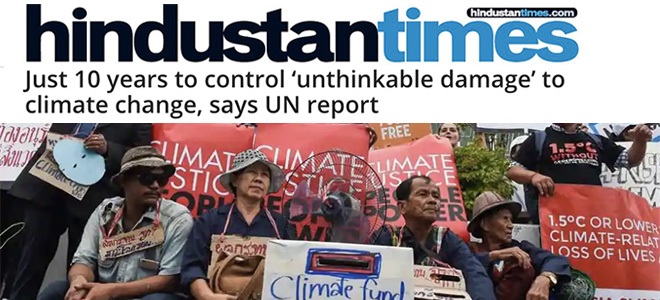
by Aditya Ghosh and Maxwell Boykoff
Geoforum, November 2018
Highlights
- Anglophone media portrayals marginalized local climate vulnerabilities.
- Technocratic conservation agenda, mythmaking drove semantic drift in media accounts.
- Anglophone media representations failed to articulate poverty, inequality, justice.
- Anglophone media discourses were found to promote neoliberal conservation agendas.
- Absence of cultural and linguistic equivalence affect vernacular media discourse.
Successful climate change adaptation and developing sustainably are two of the most pressing social, political and scientific concerns of the time (Field et al., 2014, Eriksen et al., 2015, Moser and Boykoff, 2013). Both concepts however, are discursive constructs (Dryzek, 2013; Springett and Redclift , 2015) and over the past two decades, have generated a diverse range of perspectives, opinions, agendas and understandings. These diverse ideas have been engaged in a discursive battle across the media. Agendas compete in the media for legitimation and greater eventual domination of the policy discourses across scales (Van Dijk, 1997, Saraisky, 2015). There is evidence that aggregate shifts in public opinion lead to congruent shifts in public policy (Page and Shapiro, 1983). These correlations are higher when the public opinion shift is larger, more stable, or more salient. (“salience” refers to the number of people that answer “I don’t know”; fewer “don’t knows” means higher salience) (Boykoff and Yulsman, 2013). Analysis of media coverage thus not only helps uncover how certain actors exert greater power and domination over issues such as climate change or sustainable development, it also indicates how certain sub-agendas are set to marginalise other sub-agendas (McCombs and Shaw, 1972) to influence people – specifically in ‘what to think about’ and not ‘what to think’ (Cohen, 1963).
Analysing discourses – comprising written and spoken words – helps understand how power flows through culture, politics, and society in shaping the public discourses which in turn shape the terrains of knowledge and public opinion about climate change and global warming (Boykoff and Yulsman, 2013). Many studies on the media coverage of climate change in the past 15 years have shed light on how various actors interact and engage with the issue, and how media create various kinds of discourses about the subject (e.g. Dalby, 1996, Gavin, 2009). These demonstrate how various power struggles and their corresponding interpretations in the media create certain kinds of sense-making and public opinion (Carmichael and Brulle, 2017). However, majority of these studies have focused on the English language media in developed countries. A small number of studies that has examined media coverage of climate change and sustainability in developing country contexts, also remained confined within the English language media (Billett, 2010, Boykoff et al., 2013, Dutt et al., 2013, Thaker and Leiserowitz, 2014, Thaker et al., 2017) (see Fig. 1). This poses an inherent risk of a biased and skewed understanding about what ‘traction’1climate change adaptation or sustainable development has among people in a specific society, especially those who are the most vulnerable. English language media are aimed at and consumed by a small section of elites across the developing world. In India for example, the regional language press dominates 90% of the newspaper readership and there is only one English-language newspaper in the top ten most-read newspapers (IRS, 2014). (However, by virtue of their elite readership, the English language newspapers have much greater power in setting agendas that in turn dominate national and regional policies.) Read more …

